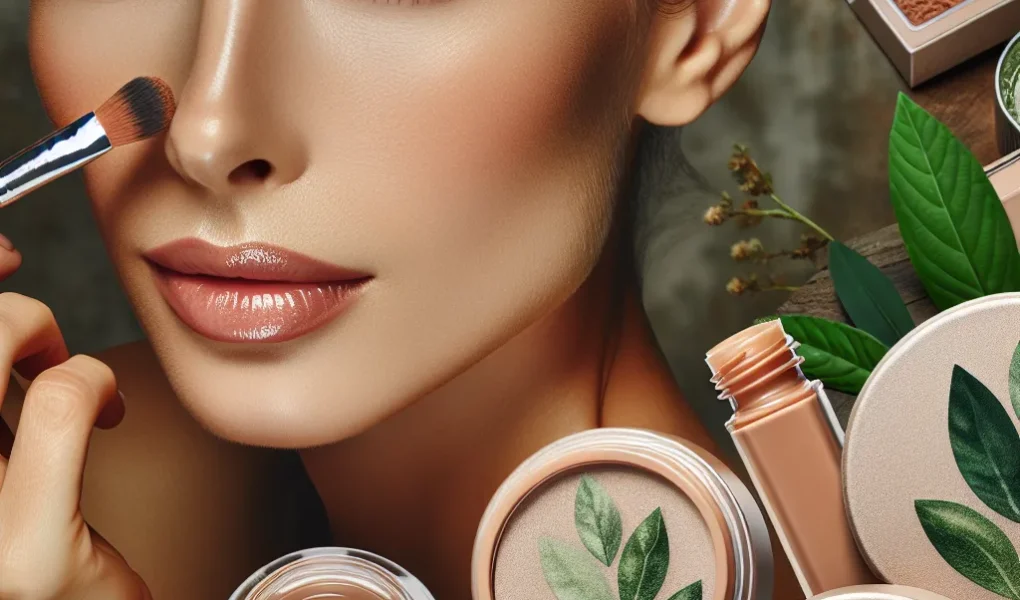The Growing Demand for Clean Beauty Products
The Growing Demand for Clean Beauty Products is on the rise, with consumers becoming more conscious about the ingredients they apply to their skin. This shift in consumer behavior has led to an increased interest in organic and natural beauty products. One area that has seen a surge in popularity is the use of loose shadows. These versatile and pigmented eyeshadows have become a must-have for beauty enthusiasts looking for clean and organic options.
The demand for clean beauty products like loose shadows is being driven by a desire for transparency in the beauty industry. Consumers are seeking products that are free from harmful chemicals, parabens, and synthetic fragrances. As a result, clean beauty brands are formulating their loose shadows with natural ingredients such as mineral pigments, plant-based oils, and botanical extracts.
The trend towards clean and organic beauty products shows no sign of slowing down, as consumers continue to prioritize their health and well-being. With the growing awareness of the potential risks associated with conventional beauty products, the market for clean alternatives, including loose shadows, is expected to expand even further in the coming years.
The Growing Demand for Clean Beauty Products
In recent years, there has been a significant increase in the demand for clean and organic beauty products, reflecting a growing consciousness among consumers about the ingredients they are applying to their skin. This shift can be attributed to the increasing awareness about the potential harmful effects of synthetic chemicals commonly found in traditional beauty products. As consumers become more mindful of their health and the environment, they are seeking out beauty products that are free from parabens, sulfates, phthalates, and other potentially harmful substances. This surge in demand for clean beauty products has prompted many cosmetic companies to reformulate their products to exclude these controversial ingredients and to embrace more natural and sustainable alternatives.
The Environmental Impact of Organic Beauty Products
The rise of clean and organic beauty products has been driven by a growing awareness of the environmental impact of traditional beauty products. As consumers become more conscious of the chemicals and synthetic ingredients used in conventional cosmetics, they are turning to organic and clean alternatives that are not only better for their skin but also for the environment.
Organic beauty products are made from natural, sustainably sourced ingredients that are grown without the use of pesticides or synthetic fertilizers. This means that the production of these products has a significantly lower impact on the environment, as it does not contribute to water and soil pollution or the destruction of natural habitats.
In addition, many organic beauty brands are committed to using eco-friendly packaging, such as biodegradable materials and recycled packaging, further reducing their environmental footprint. By choosing organic beauty products, consumers can support sustainable and ethical practices in the beauty industry while minimizing their impact on the planet.
Furthermore, the cultivation of organic ingredients often involves practices that promote biodiversity and environmental conservation, contributing to overall ecosystem health. With the demand for organic beauty products on the rise, more farmers are incentivized to adopt sustainable farming methods, leading to a positive ripple effect on the environment.
In conclusion, the shift towards clean and organic beauty products is not only beneficial for personal health but also for the planet. By choosing organic beauty options, consumers can actively contribute to reducing their environmental impact and supporting sustainable, eco-friendly practices within the beauty industry.
Understanding the Ingredients in Clean Beauty
Understanding the ingredients in clean beauty products is essential for consumers who are seeking safer and more environmentally friendly options for their skincare and beauty routines. Clean beauty products are formulated without potentially harmful chemicals such as parabens, sulfates, phthalates, and synthetic fragrances, and instead, they focus on using natural and organic ingredients. By gaining a better understanding of the ingredients in clean beauty products, consumers can make informed choices and prioritize products that promote overall well-being.
One of the key aspects of understanding clean beauty ingredients is familiarizing oneself with commonly used natural components. Ingredients like coconut oil, shea butter, jojoba oil, and aloe vera are frequently found in clean beauty products for their moisturizing and soothing properties. Similarly, plant-based ingredients such as rosehip oil, tea tree oil, and chamomile extract are known for their anti-inflammatory and antioxidant benefits. By recognizing these ingredients and their inherent qualities, consumers can confidently select products that align with their skincare needs.
Furthermore, awareness of organic certifications can aid in understanding the credibility of clean beauty products. Look for labels such as „USDA Certified Organic” or „Ecocert” to ensure that the product meets stringent organic standards. These certifications provide assurance that the ingredients used are grown and processed without synthetic pesticides, herbicides, or genetically modified organisms (GMOs), contributing to a more sustainable and eco-conscious approach to beauty.
In conclusion, comprehending the ingredients in clean beauty products empowers consumers to make conscious choices that benefit both personal health and the environment. By familiarizing oneself with natural ingredients and recognizing reputable organic certifications, individuals can embrace the shift towards cleaner and more sustainable beauty practices, ultimately contributing to a healthier and greener planet.
The Future of Sustainable Beauty
As the demand for clean and organic beauty products continues to rise, the future of sustainable beauty looks promising. Consumers are becoming increasingly aware of the environmental impact of traditional beauty products and are seeking sustainable alternatives. This shift in consumer behavior has led to a surge in the development and availability of sustainable beauty products.
The use of natural and organic ingredients, eco-friendly packaging, and cruelty-free production processes are becoming the norm for many beauty brands. The future of sustainable beauty lies in innovation, with companies investing in research and development to create high-performing products that are in harmony with the environment.
Furthermore, the concept of sustainable beauty goes beyond the products themselves. It encompasses the entire lifecycle of a product, from sourcing ingredients to manufacturing, distribution, and disposal. Brands are implementing sustainable practices across the board, aiming to minimize their carbon footprint and reduce waste generation.
The future of sustainable beauty also includes a focus on transparency and ethical sourcing. Consumers are seeking brands that provide full disclosure of their supply chain and production processes, ensuring that their products align with their values and ethical standards. This trend is driving industry-wide change and pushing more beauty companies to embrace sustainable and ethical practices.
In conclusion, the future of sustainable beauty is bright, with an increasing number of brands striving to meet the growing demand for clean, organic, and environmentally friendly products. As consumer awareness continues to drive this shift, the beauty industry is poised to see further innovation and advancements in sustainable practices.




